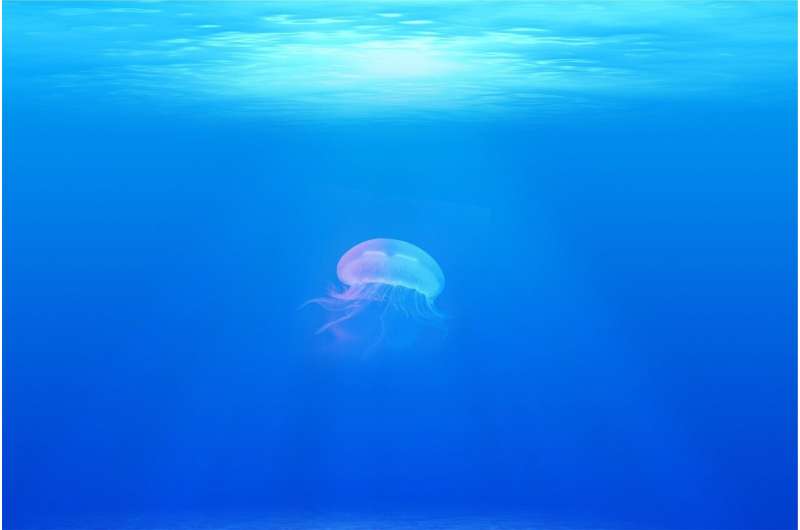Credit: CC0 Public Domain
Jellyfish native to the other side of the world have been seen off multiple North Carolina beaches, prompting some experts to tell beachgoers to kill the invasive species if the opportunity arises.
White-spotted jellyfish were seen three times between Wrightsville Beach and Beaufort during a two-week span this fall, the nonprofit Science by the Sea said earlier this month.
"Be on the lookout for this invasive species," the group said in a Facebook post. "Feel free to scoop them out of the water and deposit on land if you see one. ... This species has detrimental impacts to our local waters."
Moving the jellyfish to land causes them to die.
A man in Wrightsville Beach photographed one of the jellyfish, showing it to be nearly 3 feet wide, WWAY reported Sept. 29.
The species is native to the West Pacific, from Australia to Japan, and is known to travel in "huge swarms" that devastate the "food web," according to the Texas Invasive Species Institute. The jellyfish gobble up shrimp, larval fish and vast areas of plankton.
"They have only a mild sting and their venom isn't toxic or a threat to humans," the institute reports.
U.S. Department of Agriculture officials say the species was first reported off the California coast in 1981 and it's suspected juveniles reached the Carolinas by clinging to ships passing through the Panama Canal.
"Small examples" were found North Carolina's Bogue Sound in 2007, the Texas Invasive Species Institute says.
Experts say the jellyfish appear to "grow to unusually large sizes, upwards of 24 inches across," off the U.S. coast. One found off the coast of North Carolina had reached 28 inches, the institute reports.
©2020 The Charlotte Observer (Charlotte, N.C.)
Distributed by Tribune Content Agency, LLC.
























